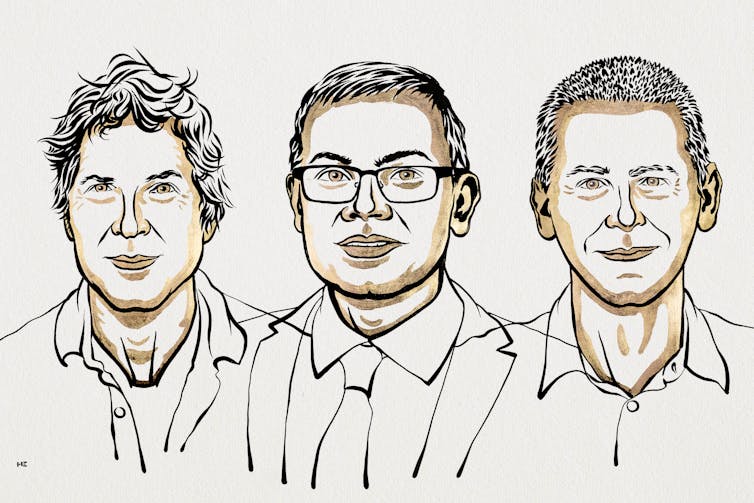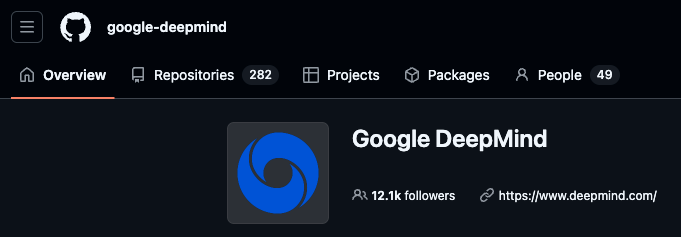- Good Bot
- Posts
- How Google DeepMind's Nobel Prize-Winning AlphaFold is Revolutionizing Biochemistry
How Google DeepMind's Nobel Prize-Winning AlphaFold is Revolutionizing Biochemistry
Harnessing the Power of AI to Tackle Protein Folding, AlphaFold’s Cutting-Edge Technology is Redefining the Future of Biomedical Research and Medical Innovation

What's that one thing we all remember from biology class? No, not that the mitochondria is the powerhouse of the cell. It was something about proteins—how proteins and amino acids are the essential building blocks of life.
All proteins are constructed from a unique sequence of amino acids, which determines how they fold into specific three-dimensional shapes.
This process is known as protein folding.

Visual Illustration of Protein Folding
Protein folding is incredibly important because a protein's shape dictates its function. As a protein folds, it adopts structures like helices and sheets, enabling it to interact with other proteins and molecules.
However, only when a protein folds correctly can it perform its full range of functions.
Some proteins support cell structure, speed up metabolic reactions, and transport vital molecules like oxygen and iron. Other proteins play key roles in muscle contraction, immune defense, protecting against pathogens, and regulating growth, among other essential functions.
Protein misfolding, however, can disrupt normal cell function and lead to diseases like Alzheimer's and cystic fibrosis.
As a result, the ability to predict protein folding has the potential to revolutionize biochemistry and medicine. Early identification of misfolded proteins could greatly improve disease prevention, allowing doctors and medical professionals to intervene earlier and design better, more targeted treatments.
But this is easier said than done. A protein with a sequence of 10 amino acids can form 1013 different configurations, while a protein with 100 amino acids has 10130 possible combinations. These astronomically high numbers reflect just how absurdly difficult it is to predict protein folding.
For decades, scientists deemed it impossible.
Enter AlphaFold

CASP14 Predictions — Source: AlphaFold GitHub
The Critical Assessment of Structure Prediction (CASP) competition is held every other year. The format is straightforward. Given an assorted sequence of amino acid inputs, participants must generate predictions of potential protein structures. Their predicted results are then assessed for accuracy by comparing them to the "ground truth" structures, which are not available to the public during the competition.
Released in 2018, Google DeepMind's AlphaFold won the CASP competition. While this was an incredible feat, there was still room for improvement.
However, just a couple of years later, in 2020, AlphaFold 2 shattered expectations. It accurately predicted 88 out of 97 targets, a performance unlike anything ever seen in the history of CASP.
To put it in perspective, AlphaFold 2 predicted the three-dimensional structures of proteins with a precision roughly equivalent to the width of a single atom. This is an achievement that would have been deemed unfathomable only a few years prior.
AlphaFold 3

Source: Google DeepMind
Unlike its predecessors, AlphaFold and AlphaFold 2, which focused exclusively on protein folding, AlphaFold 3 is a multimodal model capable of analyzing DNA, RNA, nucleic acids, ions, modified residues, and other small molecules. Despite this significant leap in capability, the machine learning architecture of AlphaFold 3 is actually a lot simpler.
Instead of relying on a transformer-based system—which was effective when working solely with proteins—AlphaFold 3 utilizes a diffusion approach. Starting from the initial positions of atoms in a molecule, it introduces noise and then reverse-engineers the molecule, predicting where each atom should be in the final structure.
This diffusion-based method is particularly powerful as it enables AlphaFold 3 to be multimodal. By employing a generalized framework, AlphaFold 3 can operate seamlessly with many types of molecules and chemicals.
The 2024 Nobel Prize

Nobel Laureates David Baker, Demis Hassabis, and John Jumper
In October 2024, Demis Hassabis, co-founder and CEO of DeepMind, and John Jumper, a senior researcher at DeepMind, were jointly awarded the Nobel Prize in Chemistry for their groundbreaking work on AlphaFold.
Since there is no Nobel Prize in Computer Science, Mathematics, Statistics, or Engineering, this moment marks a historic milestone for artificial intelligence, as it is the first explicit recognition of AI-driven research by the Nobel Prize committee.
The Power of Open Source

Google DeepMind’s AlphaFold on GitHub
AlphaFold was trained on publicly available data from the Protein Data Bank and UniProt. In keeping with this spirit of openness and collaboration, DeepMind has made AlphaFold 2 open-source.
This release, available on GitHub, includes the complete model architecture, training procedures, and other essential details to help researchers replicate and expand on AlphaFold's results.
DeepMind's commitment to open-sourcing AlphaFold will have a tremendous impact on scientific research. In fact, several universities and researchers have already begun utilizing AlphaFold to support their work.
The University of Colorado Boulder recently used AlphaFold to decode complex bacterial protein structures, a significant leap forward in efforts to combat antibiotic resistance, which remains a major challenge in modern medicine. The Boulder team had spent years unsuccessfully attempting to determine this protein's structure, but with AlphaFold, they resolved it in just 15 minutes.
Note: As of this writing, AlphaFold 3 has yet to be made publicly available. However, DeepMind has indicated plans to release AlphaFold 3's source code by the end of 2024.
Follow Good Bot for more AlphaFold and DeepMind-related advancements!
Links + Resources